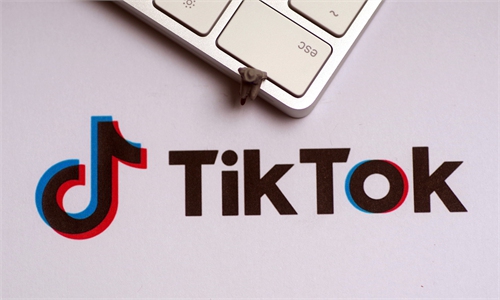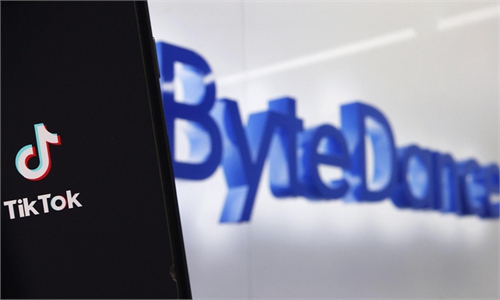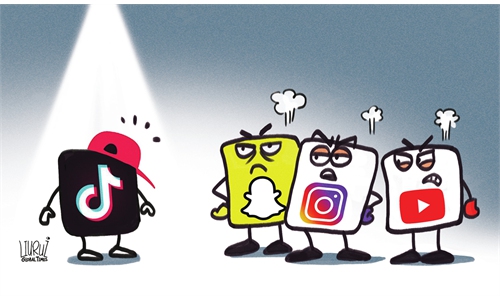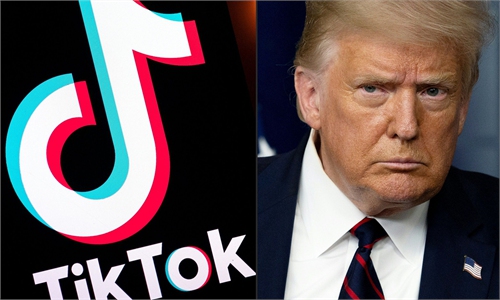Share This
Thursday, August 6, 2020
Understanding the attraction between men and women
HOW many times have we all, at some point in our lives, misinterpreted signs?
Movies like He’s Just Not That into You, which is based on Greg Behrendt’s and Liz Tuccillo’s 2004 self-help book of the same name, tells people that if a man in whom you are interested in is not making an effort to pursue you, he is “just not that into you.”
Research has long indicated that it is mostly men, who tend to misperceive friendliness as sexual interest. They overestimate the sexual interest of potential mates. Even when two people have clearly defined their relationship as platonic, more often, it is the men, who are attracted to their opposite-sex friends.
According to Dr Goh Pei Hwa from the Jeffrey Cheah School of Medicine and Health Sciences, this is not always the case.
While the majority of existing findings show the abovementioned pattern of men overperceiving sexual interest, relationship researchers have demonstrated that among heterosexual couples in committed relationships, men were more likely to underperceive sexual interest from their partners.
Men from certain cultures were also less likely to overperceive sexual interest than others.
In other words, the “male over perception bias” appears to be less universal than previously assumed.
In her recent work, Dr Goh revisited the question of gender differences in sexual perception accuracy using a face-to-face, laboratory-based interaction paradigm on a sample of university students in Malaysia.
Participants consisted of 62 previously unacquainted heterosexual dyads aged 20 years on average. Each participant was randomly paired with another participant of the other sex, and each dyad engaged in a semi-structured conversation task for five minutes.
After the interaction task, participants completed measures capturing their degree of sexual interest in their interaction partner and an estimation of their partner’s sexual interest in them.
Results revealed that people’s perception of their partner’s sexual interest did not match their partner’s actual sexual interest. This indicates that people generally lacked accuracy in their perception of sexual interest.
In fact, people’s perception of sexual interest was highly in line with their own sexual interest in their interaction partner.
More importantly, no gender differences were found. This means that both men and women were equally inaccurate and equally likely to project their own sexual interest onto their estimations of their partner’s sexual interest.
“In essence, people are bad at interpreting sexual interest from strangers. Based on the research, Malaysian men do not overperceive sexual interest as past studies have suggested. Women, on the other hand, tend to underperceive sexual interest, supporting past studies,” says Goh.
The current study advances our understanding that people are generally underperceiving sexual interest in initial interactions, regardless of gender.
That is, people are either not communicating their sexual interest effectively or missing all the sexual interest cues being expressed by someone else.
Here, it translates into a lot of potentially missed opportunities. This is highly applicable to first meetings between potential partners, which begs the question: does technology further impede our ability to gauge the sexual interest of others accurately?
With dating apps, we typically already know that we are chatting with someone who finds us attractive or appealing to a certain extent.
Thus, there is no need to try to decipher whether or not someone is into us based on the interaction.
Goh concludes: “If you like someone or have some interest in a person, express it more overtly. This will invite the other person to respond according to his or her own interest in you.
“Let the other person decide if he or she is interested, not you and your potentially (or most likely) wrong perceptions”.
■ For more details, look out for the advertisement in this StarSpecial.
Source link
Wednesday, August 5, 2020
US president’s move to get a cut from TikTok as an ‘extortion threat’ and ‘mafia deal’
 |
Washington robs TikTok by treading upon rules |
 |
| TikTok for Business: What is TikTok Anyway? |
Countries mull reducing reliance on US tech in wake of TikTok drama
As the US shocked the free world with its mafia-style forced sale of Chinese-owned short-form video platform TikTok, Chinese
experts said that US extortion and looting have left a deep impression on the minds of the nations of the world, and pointed out that many of the countries are already striving to boost self-reliance in terms of
security, industrial independence and technological ownership.
Expert slams US president’s move to get a cut from TikTok as an ‘extortion threat’ and ‘mafia deal’.
https://youtu.be/cOgQnIJJRZs
https://youtu.be/j7Zi1CCtQIQ
https://youtu.be/j7Zi1CCtQIQ
| Controversial: Trump has said he would approve TikTok’s sale to Microsoft only if the US government gets a cut from the deal. — Reuters |
TikTok's roller-coaster ride in the United States continued on Monday as President Donald Trump said he would approve the video-sharing app's sale to Microsoft only if the US government gets a cut, a condition that one expert called a "mafia" deal.
The president also gave Microsoft and TikTok's Chinese owner, ByteDance, a deadline of Sept 15 to complete the deal, or the app will be banned in the US.
Foreign Ministry spokesman Wang Wenbin said at a regular media briefing in Beijing on Tuesday that the US treatment of TikTok is "outright bullying", and the US only uses a "national security risk" as an excuse to suppress Chinese tech enterprises.
"The relevant enterprises carry out business activities in the US following market principles and international rules and abiding by local laws and regulations," he said. "However, the US has set restrictions and suppressed them with unwarranted charges, which is political manipulation."
Wang said that if the wrongdoing by the US continues, then any country could take similar measures against any American enterprise on the grounds of national security.
"The US side must not open this Pandora's box, otherwise it will suffer its consequences," he said.
The increased scrutiny of TikTok culminated on Friday when Trump threatened to ban the app from operating in the US due to a "national security risk". The negotiations between the two companies were then halted.
But after a weekend phone call with Microsoft CEO Satya Nadella, Trump reversed his stance and reportedly gave the two companies 45 days to close the deal. This was confirmed by Microsoft on Sunday, which said in a statement it "will move quickly to pursue discussions" with ByteDance and complete the talks "no later than" Sept 15.
The president added a condition to the potential purchase on Monday: Microsoft should buy TikTok outright, and the US Treasury Department should be paid because the government made the deal possible.
"It's a little bit like the landlord/tenant; without a lease the tenant has nothing, so they pay what's called 'key money', or they pay something," Trump told reporters in the Cabinet Room at the White House on Monday. "But the United States should be reimbursed or should be paid a substantial amount of money, because, without the United States, they don't have anything."
Investors in privately owned Byte-Dance valued TikTok at $50 billion, according to a Reuters report.
Kai-Fu Lee, former chairman of Google China, said the US treatment of TikTok, including "forced acquisition, plus only 45 days, plus finder's fees", is "incredible".
Lee said that China has set clear rules for internet companies that want to operate in the country, and Google had decided to exit as it didn't want to comply with Chinese laws and regulations.
"The US didn't give any parameters that TikTok could work with, and didn't provide any evidence for their claims that TikTok had caused national security risks to the US," he said.
The legal basis of Trump's requirement that some of the money from the deal go to the US Treasury was immediately questioned by experts.
"This is quite unusual; this is out of the norm," Gene Kimmelman, a former chief counsel for the US Department of Justice's Antitrust Division, told CNN.
"It's actually quite hard to understand what the president is actually talking about here.... It's not unheard of for transactions to have broader geopolitical implications between countries, but it's quite remarkable to think about some kind of money being on the table in connection with a transaction," said Kimmelman, a senior adviser to the policy group Public Knowledge.
Julian Sanchez, a senior fellow at the Cato Institute, a think tank based in Washington, D.C., said Trump's "extortion threat" is a "mafia business model".
"Trump's full explanation of why the Treasury should get a 'cut' of a Microsoft/TikTok deal is, somehow, even more grotesque and shameless than I had anticipated," said Sanchez.
"As with his tariff policy, there doesn't seem to be any consideration of whether this sets a dangerous precedent for other countries to engage in similar pretextual protectionism against us, or how whimsically compelling divestment might affect international investment," he said.
Samm Sacks, a senior fellow at Yale Law School's Paul Tsai China Center, also warned that shutting down the app altogether would set "a dangerous precedent in which the US government can blacklist companies based on country of origin using blanket national security as justification".
The Trump administration has been scrutinizing TikTok for several months, claiming that the platform shares the data of US users with the Chinese government. The company has repeatedly denied the accusations, maintaining that all the users' information is stored in the US.
Source link
Related:
While China is busy innovating, the US is guarding
against an innovative China. This twisted behavior has prevented the US
from continuing to innovate and reform. The dominant position it
acquired, or its hegemony, is becoming a self-inflicted fetter for its
progress.
The president also gave Microsoft and TikTok's Chinese owner, ByteDance, a deadline of Sept 15 to complete the deal, or the app will be banned in the US.
Foreign Ministry spokesman Wang Wenbin said at a regular media briefing in Beijing on Tuesday that the US treatment of TikTok is "outright bullying", and the US only uses a "national security risk" as an excuse to suppress Chinese tech enterprises.
"The relevant enterprises carry out business activities in the US following market principles and international rules and abiding by local laws and regulations," he said. "However, the US has set restrictions and suppressed them with unwarranted charges, which is political manipulation."
Wang said that if the wrongdoing by the US continues, then any country could take similar measures against any American enterprise on the grounds of national security.
"The US side must not open this Pandora's box, otherwise it will suffer its consequences," he said.
The increased scrutiny of TikTok culminated on Friday when Trump threatened to ban the app from operating in the US due to a "national security risk". The negotiations between the two companies were then halted.
But after a weekend phone call with Microsoft CEO Satya Nadella, Trump reversed his stance and reportedly gave the two companies 45 days to close the deal. This was confirmed by Microsoft on Sunday, which said in a statement it "will move quickly to pursue discussions" with ByteDance and complete the talks "no later than" Sept 15.
The president added a condition to the potential purchase on Monday: Microsoft should buy TikTok outright, and the US Treasury Department should be paid because the government made the deal possible.
"It's a little bit like the landlord/tenant; without a lease the tenant has nothing, so they pay what's called 'key money', or they pay something," Trump told reporters in the Cabinet Room at the White House on Monday. "But the United States should be reimbursed or should be paid a substantial amount of money, because, without the United States, they don't have anything."
Investors in privately owned Byte-Dance valued TikTok at $50 billion, according to a Reuters report.
Kai-Fu Lee, former chairman of Google China, said the US treatment of TikTok, including "forced acquisition, plus only 45 days, plus finder's fees", is "incredible".
Lee said that China has set clear rules for internet companies that want to operate in the country, and Google had decided to exit as it didn't want to comply with Chinese laws and regulations.
"The US didn't give any parameters that TikTok could work with, and didn't provide any evidence for their claims that TikTok had caused national security risks to the US," he said.
The legal basis of Trump's requirement that some of the money from the deal go to the US Treasury was immediately questioned by experts.
"This is quite unusual; this is out of the norm," Gene Kimmelman, a former chief counsel for the US Department of Justice's Antitrust Division, told CNN.
"It's actually quite hard to understand what the president is actually talking about here.... It's not unheard of for transactions to have broader geopolitical implications between countries, but it's quite remarkable to think about some kind of money being on the table in connection with a transaction," said Kimmelman, a senior adviser to the policy group Public Knowledge.
Julian Sanchez, a senior fellow at the Cato Institute, a think tank based in Washington, D.C., said Trump's "extortion threat" is a "mafia business model".
"Trump's full explanation of why the Treasury should get a 'cut' of a Microsoft/TikTok deal is, somehow, even more grotesque and shameless than I had anticipated," said Sanchez.
"As with his tariff policy, there doesn't seem to be any consideration of whether this sets a dangerous precedent for other countries to engage in similar pretextual protectionism against us, or how whimsically compelling divestment might affect international investment," he said.
Samm Sacks, a senior fellow at Yale Law School's Paul Tsai China Center, also warned that shutting down the app altogether would set "a dangerous precedent in which the US government can blacklist companies based on country of origin using blanket national security as justification".
The Trump administration has been scrutinizing TikTok for several months, claiming that the platform shares the data of US users with the Chinese government. The company has repeatedly denied the accusations, maintaining that all the users' information is stored in the US.
Source link
Related:
 US degrades from innovator to digital rogue
US degrades from innovator to digital rogue
While China is busy innovating, the US is guarding
against an innovative China. This twisted behavior has prevented the US
from continuing to innovate and reform. The dominant position it
acquired, or its hegemony, is becoming a self-inflicted fetter for its
progress.
Hard to say who will surprise you in the future, US or TikTok
In addition to power, there exist rules and morals in this world. Although Trump's power can overwhelm rules and ethics, he has only fewer than three months left before the presidential election. People have a subtle perception of rules and ethics in their minds. Trump could thus lose votes due to any most slightly careless move.
TikTok ban demonstrates barbaric act of rogue US: Global Times editorial
In the most barbaric way, the US is trying to solidify a high-tech world order in which it is the absolute center. Whether it ends up "killing" TikTok or forcibly taking the child out of Bytedance's arms, it is one of the ugliest scenes of the 21st century in the high-tech competitionTrump wants to kill TikTok
We are not the enemy: TikTok chief
https://youtu.be/4bS5ukQGa_Y
TikTok users take on Trump
https://youtu.be/Jo6LHELhhnM
Related posts:
US adopts blinkered view of TikTok

Unknown Chinese startup creates the world's most valuable Bytedance

Tuesday, August 4, 2020
No smartphone = problems living in Penang
Please resolve the parking and soon-to-be marketing woes of constituents who do not own and do not wish to own smartphones.
LIVE in Penang, and while I usually try to catch the infrequent Rapid bus, walk or bike, I do drive when I need to. However, I have an intractable problem with parking at Penang City Council-designated parking lots because I do not own a smartphone.
The state government implemented an e-parking system at the start of this year. My old phone does not allow me to download the e-parking app.
To compound my parking woes, I am unable to purchase parking coupons – they are no longer available as a result of the new system.
I have actually paid the council RM40 for unused, 2019 parking coupons.
Effectively, I have already paid for public parking which I cannot make use of. I went to the council recently, hoping to exchange the outdated parking coupons for current ones or to try and get my money back.
I explained my problem, fanned out the “virgin” parking coupon booklets and showed my phone.
The staff that I talked to said he couldn’t help.
When I insisted that I am not getting a service I had already paid for, he said I should document my complaint in a complaints form.
“You are not the first person to complain. Many have already complained before you.”
“So what happened to their complaints?” I asked.
“Nothing, no action was taken, ” was his reply.
“You want me to waste my time filling out a complaint form when many have already done the same and no action was taken?”
I realised then that the city council was only implementing a policy that the Penang government had pushed through without thinking of the needs of all in the community.
Did the state government not receive the complaints that had been lodged by those who do not have smartphones and are facing parking woes? How is this segment of the population to park at council parking lots?
Buy a smartphone? That is not right, some of us make a conscious choice not to own a smartphone because, hey, smartphones are so not smart for the planet.
Another problem looms on the horizon for this segment of our community: the state government plans to implement the use of an e-wallet app at local markets. I will not be able to buy fresh, local produce there because I don’t have a smartphone.
The state government’s “Green, Clean Penang” does not take into account the environmental impact of smartphones and their usage for basic services like marketing and parking.
Apart from the carbon footprint of manufacturing smartphones that only last for two to three years, the way smartphones are used has a huge environmental impact too. Among the largest generators of CO2 emissions are the servers and data centres that calculate every Google search, every Facebook post, and even every time we open an app.
To those calling the shots at the Penang government, please resolve the parking and soon-to-be marketing woes of your constituents who do not own and do not wish to own smartphones.
TEH AWA MUTU Penang
Source link
Read more:
Related post:
Subscribe to:
Posts (Atom)




